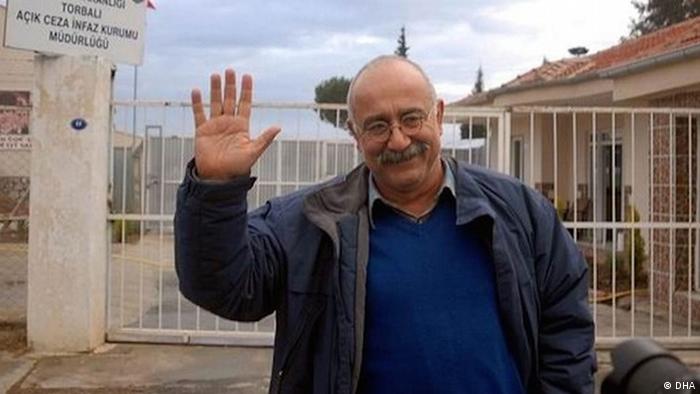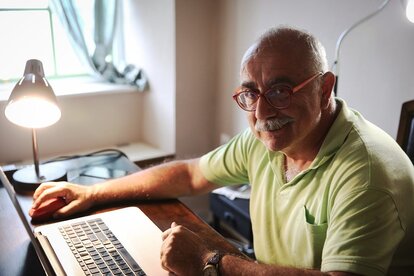Human Rights
Aegean Sea, Migration and Human Rights’ violations

The case of Sevan Nişanyan
The migration crisis, the Greek-Turkish relations, national political developments in both countries and the tension in Eastern Mediterranean keep us alert and always ready to observe the developments. More precisely, the Eastern Mediterranean has always been an area of important political and cultural developments, dense migration, but also a hotspot of international tensions. Therefore, over the last years Aegean, Greek islands and human stories were one of the main topics on International Media, and also crucial for the international political landscape. The recent deportation of the Turkish- Armenian writer, Sevan Nişanyan spot the lights ones again raising questions for human rights violations and rule of law in Greece.
Sevan Nisanyan, a 66-year-old linguist and blogger was arrested on the island of Samos last week and faced deportation. He had been detained after Greek authorities refused to renew his residence permit. The court took the decision to release him on 7th of January with the obligation to leave Greece within two weeks. Still the real reason of his deportation by Greek authorities is unknown and there is no reference by Governments’ side or Greek media.

But who is Nişanyan? He had been jailed in Tukey in 2014 on charges of illegal construction; a case he claims was punishment for his outspoken views about restrictions on freedom of expression in the country. One of his books “The Wrong Republic” had questioned Turkish Republic and especially Mustafa Kemal and was highly controversial within the country. He is a well-known and established personality in Turkey and as he claims his arrest was vocally ordered by Erdogan.
Sevan Nişanyan was given a cumulative prison sentence of 16 years and 7 months for alleged building infractions, after he criticized the government’s attempts to prohibit the prophet Muhammad's criticism in a blog entry in September 2012. He escaped from the prison in July 2017 and moved to Athens, where he intended to apply for political asylum. As he claims, the process was a time-consuming and bureaucratic procedure and for that reason he gave up and tried to acquire a resident permit after his wedding with a Greek citizen. In October 2021, while visiting Albania, he was reportedly declared persona non grata by the Greek authorities and banned from re-entry, with reason said to be a state secret.
On December 30 police on the Cycladic island arrested Nişanyan. According to his wife, Nişanyan had gone to the police precinct to renew some paperwork, but was arrested pending a deportation order that was issued two months previously while he was out of the country. Nisanyan is a former Turkish citizen who took the Armenian citizen only after having fled to Greece. For that reason, the Armenian Embassy in Greece said that as he is a citizen of Armenia, "he can leave for Armenia if he wishes”.

The case of Sarah Mardini, Seán Binder, and Athanasios Karakitsos
This was one of the recent cases in Greek islands over the last years, raising the accusations towards Greece for important violations on human rights. Another case that concerned international community was the case of the arrest of three activists Sarah Mardini, Seán Binder, and Athanasios (Nassos) Karakitsos. Sarah, Seán, and Nassos served as volunteers of a Greek humanitarian organization operating on Lesvos since 2015. They have contributed significantly to the rescue of thousands of refugees who made the harrowing journey from Turkey across the Aegean Sea. They have also participated in joint Search and Rescue operations with the Hellenic Coast Guard as well as The European Border and Coast Guard Agency (FRONTEX) and generally helped with every possible way.
More precisely, all three are accused of several crimes, including being members of a criminal organization, espionage, as well as assisting third-country nationals to illegally enter Greek territory. According to the legal team representing the three humanitarians, the Greek authorities failed to produce concrete evidence in support of such serious accusations. Officially, the trial has started on 18 November 2021.
Raising the question of Human Rights
Petitions have been signed, liberal organizations has been vocal all that period supporting the activists and providing awareness of the case in European level and asking for implementing the rule of law. Hence, European civil society actors and citizens have continuously opposed the intimidation and punishment of volunteers and non-governmental organizations. State practices that criminalize EU citizens for their solidarity with migrants and refugees are intolerable and risk our fundamental European values of justice, solidarity, and human right.
Arguably, the case of Nisanyan raising concerns on government’s policies and especially the way that Ministry of Migration and Asylum is dealing with migration crisis and people who ask for political asylum. The delays and the lack of governmental strategy towards refugees and migrants are incredibly crucial for the protection and the preservation of human rights. Lastly, we need to highlight the fact that the Greek public opinion is not aware of the details and the procedures of those cases, because Greek media are not highlighting in their coverage or raising awareness of these cases in their daily agenda. Hence, the issue continues to be controversial within the Greek society.
